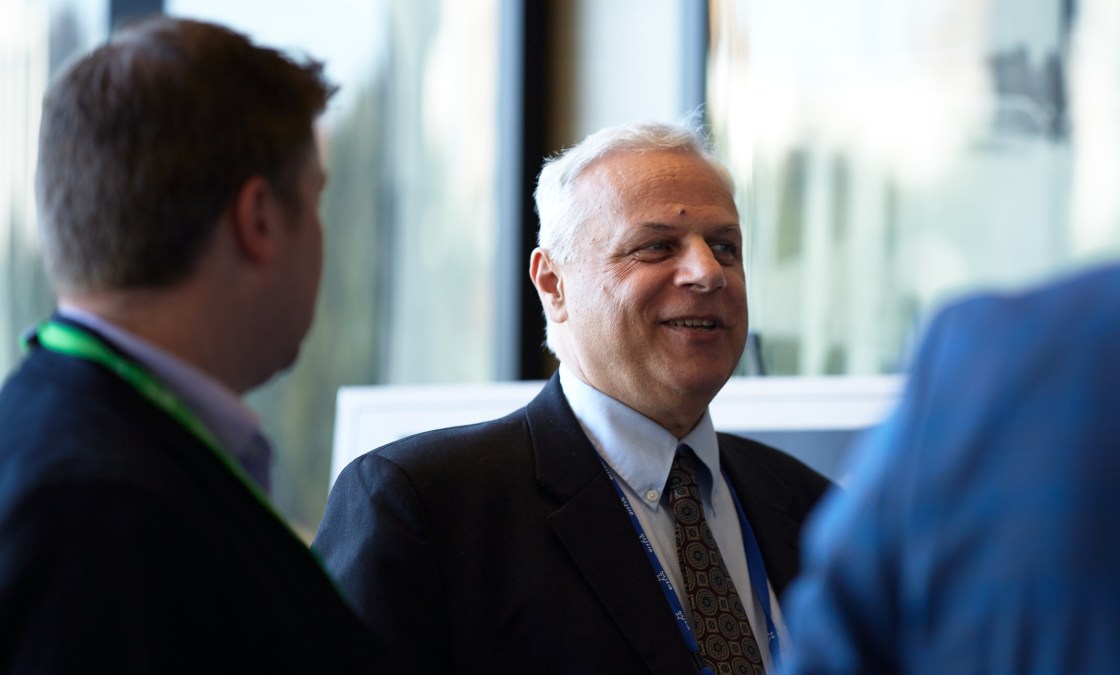Former Wyoming CIO Bill Vajda named director of Michigan cyber institute

Former Wyoming Chief Information Officer Bill Vajda last week started in a new role as director of the Upper Peninsula Cybersecurity Institute, a continuing education and workforce development initiative at Northern Michigan University.
In an interview with StateScoop, Vajda shared which projects he was most proud of from his nearly 12 months with the Wyoming state government and how a health scare in February provided a fresh perspective that made the new director role seem more appealing.
Following a career that included serving as the state CIO of Alaska and CIO of the U.S. Interior Department, Vajda said he wanted to stay with his family in Michigan, in a role where he could “give back.” He said he was also attracted to working for a university where many family members had attended and where his father worked 35 years as a professor.
“I think people are the key to everything we do in technology, and so I’ve long been focused on workforce, on academics, on how all these things pull together,” he said. “So when this opportunity came up, it kind of tied together a lot of personal and professional priorities.”
Since its launch in 2019, the cyber institute has provided technical certification courses and led workforce development programs. Today it offers training and exercises for students attending about 80 K-12 schools. Vajda said the university’s status as one of the National Security Agency’s National Centers of Academic Excellence in Cybersecurity means it meets requirements for collaboration and curriculum offerings that make it well equipped to boost the region’s cybersecurity workforce.
“The UPCI is kind of the hub linking into the school of business, the ROTC program, the K-12 outreach with school of labor, school of education,” he said. “It really ties together a lot of different facets of information assurance, academic development, workforce development, regional cooperation, a lot of things you need to be successful, not just as a program, but that you need to make communities successful in the cyber age.”
‘Starting to get traction’
Vajda said he’s not surprised to no longer find himself in Wyoming. State CIOs have a notoriously short tenure — averaging around two years — and he said it’s the kind of job one takes with the expectation that a resignation is around the corner. He stepped down in January after Cheyenne lawmakers folded his office into the Department of Administration and Information as part of a broader effort to consolidate the state’s agencies.
In an email last Nov. 1 to Gov. Mark Gordon’s then-chief of staff, Buck McVeigh, Vajda indicated his willingness to continue as CIO in the governor’s second term.
“I’d like to continue as the CIO after the election,” he wrote. “I think we are starting to get traction, both in Wyoming as well as nationally. We’ve built a good team, and have many efforts that I would like to bring to fruition.”
Gordon was re-elected in a landslide Nov. 8.
Asked by StateScoop about which efforts he was referencing, Vajda pointed to the creation of his department’s leadership team and “a pretty substantial cybersecurity capability.” He said the state had also signed a workforce development agreement with the University of Wyoming to offer mid-career and executive leadership training that may start this spring. He said his team had also discussed offering vocational and mid-career training through the state’s community colleges.
“At the end of my first year there, I had gotten the basic framework of a lot of new capabilities in place and I was looking forward to seeing how well they performed before I could declare success,” he said.
But the restructuring was “not what I signed up for,” Vajda said. “It kind of was a fundamental change to what I agreed to.”
‘Test and practice’
In addition to his federal and state experience, Vadja said he also once served as city manager for the City of Marquette, in Michigan’s Upper Peninsula. This and much of his other professional experience, he said, will be useful at the Upper Peninsula Cybersecurity Institute.
“I have a fair view of what some of our local and regional challenges are and needs are in terms of local governments, county governments, tribal governments, what some of the concerns are for small businesses that operate in the cyber domain, what kind of training they need, what kind of support and help they need,” he said. “With academia, you’re allowed not only to come up with ideas and hypotheses, but put them to the test and practice them. Higher education environments are a great place to rally all those interests.”
Vajda said academia can be “leveraged for much greater effect for building resiliency in those environments” than if they go it alone.
“I’m very excited about this,” he said, “because it brings together many things that hopefully improve my personal work-life balance, but it’s still a place where I know for these big issues I can still make a difference and that’s very satisfying.”






